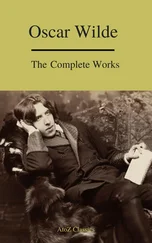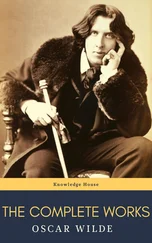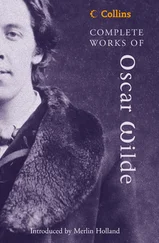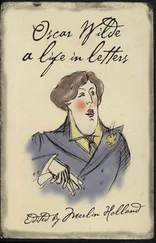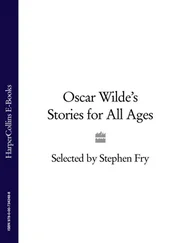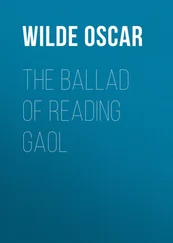The true folk story rejects any genre division between comedy and tragedy just as the miracle play fell on its knees in slapstick and remained on them in worship. Wilde knew – and was ultimately to prove (as one may see from Toulouse-Lautrec’s portrait) – that there is no tragedy greater than that of the weeping clown. Hamlet, Othello, Lear and Macbeth are either conscious or unconscious clowns at various times, and are set in deliberately comic contexts here and there. ‘Lord Arthur Savile’s Crime’ speaks of how ‘Our Guildensterns play Hamlet for us, and our Hamlets have to jest like Prince Hal. The world is a stage, but the play is badly cast.’ But Wilde also acknowledged the philosopher in Falstaff and the buffoon in Hamlet. So his own Canterville Ghost might render his audience defenceless by paralysing it with farce, and then strike with pity; and his ‘Lord Arthur Savile’s Crime’ promenades on the verge of horror before saving its reader in laughter; and Dorian Gray goes to his death as we are still smiling over grace-notes of satire such as ‘young Lord Poole, Bournemouth’s eldest son’.
The last line no doubt inspired Evelyn Waugh’s Lord Tangent, son of Lord Circumference, destined to die so comically, just as Wilde inaugurates the wit of so many other comparable figures in our century from ‘Saki’ to Joe Orton, but unlike most of them it is not a wit which takes any pleasure in suffering and it holds out – far more than does the formally Roman Catholic Waugh – continual if desperate hopes of salvation. In their different ways the four stories of A House of Pomegranates turn on those hopes, even if the young King can only find it by the recognition of suffering, and the Star-Child by himself suffering enough to cut short his life, while the Dwarf and the Fisherman can only be saved by death itself. The satire on predestination in ‘Lord Arthur Savile’s Crime’ is subsequently asserted in explicit language in The Picture of Dorian Gray: Dorian Gray can save himself, enchantment or no, but fails because he will not separate repentance from hypocrisy while it is in his power to do so. Perhaps the most neglected biographical item in Oscar Wilde’s life is that he was the nephew of three clergymen.
The origin of the stories in the art of story-telling accounts for one of their most startling dichotomies – dialogue and description. The exotic catalogues of outré phenomena might seem almost the antithesis of the rippling, quicksilver dialogue: but we must remember the catalogues were conceived of as spoken, as are those in Homer. Persons with access to a film of Micheál Mac Liammóir’s The Importance of Being Oscar can appreciate it from his rolling French rendition of Herod’s jewel speech in Salome. If a story’s pace seems to slow down in the reading of narrative, read it aloud. The dialogue of the stories is story-teller craft in itself, by a story-teller with a great gift for varying voices: in Dorian Gray, among other things, one can see the great modern master of comedy bursting the constraints of prose in his anxiety to realise himself fully in the theatre.
But the underlying question on how far the story is the narrator, and the work of art its performer, reaches its most subtle expression in the enlarged Portrait of Mr W. H. over which Wilde laboured for five years only to have its full version vanish from sight at the time of his trial. Wilde has, idiotically, been called a snob; but when it comes to snobbery, everyone – or almost everyone – was out of step but our Oscar. Scholarship virtually united in crediting Shakespeare with an Earl as the recipient of his sonnets: scholars split one another’s hairs as to which Earl, but agreed that it must be some Earl. Wilde insisted that the obvious place to look was in the poet’s own profession, and the obvious context the performance of his plays. Having found the most likely solution he then charmingly played with the emotional pressures of conviction in a scholarly thesis. Conversion brings loss of the converter’s faith, much as in the old folk stories the granting of a wish bankrupts its recipient. And we are left asking whether Shakespeare must remain in perpetual dependence on the Mr W. H. who interprets him just as Wilde can only be kept alive by his readers. But Mr W. H. was a boy actor, and Wilde’s future is in no doubt when left in the hands of the children. The converse is equally true: unless we be as little children we shall never fully enter the kingdom of Oscar Wilde.
THE PICTURE OF DORIAN GRAY
The Preface
THE artist is the creator of beautiful things.
To reveal art and conceal the artist is art’s aim.
The critic is he who can translate into another manner or a new material his impression of beautiful things.
The highest, as the lowest, form of criticism is a mode of autobiography.
Those who find ugly meanings in beautiful things are corrupt without being charming. This is a fault.
Those who find beautiful meanings in beautiful things are the cultivated. For these there is hope.
They are the elect to whom beautiful things mean only Beauty.
There is no such thing as a moral or an immoral book.
Books are well written, or badly written. That is all.
The nineteenth century dislike of Realism is the rage of Caliban seeing his own face in a glass.
The nineteenth century dislike of Romanticism is the rage of Caliban not seeing his own face in a glass.
The moral life of man forms part of the subject-matter of the artist, but the morality of art consists in the perfect use of an imperfect medium. No artist desires to prove anything. Even things that are true can be proved.
No artist has ethical sympathies. An ethical sympathy in an artist is an unpardonable mannerism of style.
No artist is ever morbid. The artist can express everything.
Thought and language are to the artist instruments of an art.
Vice and virtue are to the artist materials for an art.
From the point of view of form, the type of all the arts is the art of the musician. From the point of view of feeling, the actor’s craft is the type.
All art is at once surface and symbol.
Those who go beneath the surface do so at their peril.
Those who read the symbol do so at their peril.
It is the spectator, and not life, that art really mirrors.
Diversity of opinion about a work of art shows that the work is new, complex, and vital.
When critics disagree the artist is in accord with himself.
We can forgive a man for making a useful thing as long as he does not admire it. The only excuse for making a useless thing is that one admires it intensely.
All art is quite useless. 1
THE studio was filled with the rich odour of roses, and when the light summer wind stirred amidst the trees of the garden, there came through the open door the heavy scent of the lilac, or the more delicate perfume of the pinkflowering thorn.
From the corner of the divan of Persian saddle-bags on which he was lying, smoking, as was his custom, innumerable cigarettes, Lord Henry Wotton could just catch the gleam of the honey-sweet and honey-coloured blossoms of a laburnum, whose tremulous branches seemed hardly able to bear the burden of a beauty so flame-like as theirs; and now and then the fantastic shadows of birds in flight flitted across the long tussore-silk curtains that were stretched in front of the huge window, producing a kind of momentary Japanese effect, and making him think of those pallid jade-faced painters of Tokio who, through the medium of an art that is necessarily immobile, seek to convey the sense of swiftness and motion. The sullen murmur of the bees shouldering their way through the long unmown grass, or circling with monotonous insistence round the dusty gilt horns of the straggling woodbine, seemed to make the stillness more oppressive. The dim roar of London was like the bourdon note of a distant organ.
Читать дальше
Конец ознакомительного отрывка
Купить книгу


